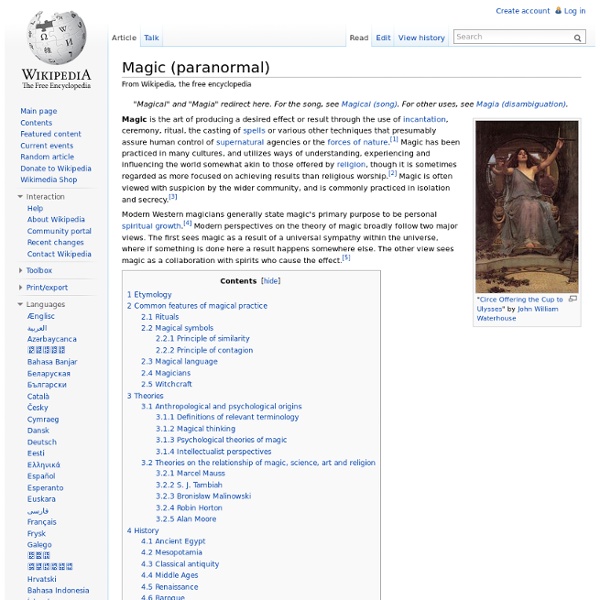A Simple Novel Outline – 9 questions for 25 chapters « H.E. Roulo
Just as every tree is different but still recognizably a tree, every story is different but contains elements that make it a story. By defining those before you begin you clarify the scope of your work, identify your themes, and create the story you meant to write. At Norwescon 2011 I sat in on a session called Outline Your Novel in 90-minutes led by Mark Teppo. I’ll give you the brief, readable, synthesized version. Answer 9 questions and create 25 chapter titles and you’re there.
Magi
Magi (/ˈmeɪdʒaɪ/; Latin plural of magus; Ancient Greek: μάγος magos; Old Persian: 𐎶𐎦𐎢𐏁 maguš, Persian: مُغ mogh; English singular magian, mage, magus, magusian, magusaean; Kurdish: manji) is a term, used since at least the 6th century BC, to denote followers of Zoroastrianism or Zoroaster. The earliest known usage of the word Magi is in the trilingual inscription written by Darius the Great, known as the Behistun Inscription. Starting later, presumably during the Hellenistic period, the word Magi also denotes followers of what the Hellenistic chroniclers incorrectly associated Zoroaster with, which was – in the main – the ability to read the stars, and manipulate the fate that the stars foretold.[citation needed] However, Old Persian texts, pre-dating the Hellenistic period, refer to a Magus as a Zurvanic, and presumably Zoroastrian, priest. Pre-4th century BC usage[edit]
Golden Dawn Tradition
Occult Dion Fortune - In the Golden Dawn Tradition Ritual magician and occult author Dion Fortune was born Violet Mary Firth, on 6th December 1890, in Bryn-y-Bia, Llandudno, North Wales. The family moved to Somerset when Violet was twelve and by the time she was fourteen they had converted to Christian Science.
Thirteen Writing Prompts.
[Originally published May 4, 2006.] Write a scene showing a man and a woman arguing over the man’s friendship with a former girlfriend. Do not mention the girlfriend, the man, the woman, or the argument. Write a short scene set at a lake, with trees and shit. Throw some birds in there, too.
Black magic
History[edit] Like its counterpart white magic, the origins of black magic can be traced to the primitive, ritualistic worship of spirits as outlined in Robert M. Place's 2009 book, Magic and Alchemy.[3] Unlike white magic, in which Place sees parallels with primitive shamanistic efforts to achieve closeness with spiritual beings, the rituals that developed into modern "black magic" were designed to invoke those same spirits to produce beneficial outcomes for the practitioner. Place also provides a broad modern definition of both black and white magic, preferring instead to refer to them as "high magic" (white) and "low magic" (black) based primarily on intentions of the practitioner employing them. He acknowledges, though, that this broader definition (of "high" and "low") suffers from prejudices as good-intentioned folk magic may be considered "low" while ceremonial magic involving expensive or exclusive components may be considered by some as "high magic", regardless of intent.[3]
List of religions and spiritual traditions
Religious symbols in clock-wise order: Judaism, Christianity, Islam, Baha'i, Hinduism, Taoism, Buddhism, Sikhism, Rodnoveri, Celtic pagan, Heathenism, Semitic pagan, Wicca, Kemetism, Hellenic pagan, Roman pagan. Abrahamic religions[edit] A group of monotheistic traditions sometimes grouped with one another for comparative purposes, because all refer to a patriarch named Abraham. Babism[edit] Azali
How to Write a Great Novel: Junot Diaz, Anne Rice, Margaret Atwood and Other Authors Tell
(See Corrections & Amplifications item below) Richard Powers lounges in bed all day and speaks his novels aloud to a laptop computer with voice-recognition software. Junot Diaz, author of the Pulitzer-prize winning novel "The Brief and Wondrous Life of Oscar Wao," shuts himself in the bathroom and perches on the edge of the tub with his notebook when he's tackling a knotty passage. Hilary Mantel, whose Tudor drama "Wolf Hall" claimed this year's Man Booker Prize, jumps in the shower when she gets...
Enochian magic
History[edit] Origins and manuscript sources[edit] The Enochian system of magic as practiced today is primarily the product of researches and workings by four men: John Dee, Edward Kelley, Samuel Liddell MacGregor Mathers and Aleister Crowley. In addition, the researches of Dr Thomas Rudd, Elias Ashmole, Dr William Wynn Westcott and Israel Regardie were integral to its development.[1]
The Occult - Occultopedia: The Occult and Unexplained Encyclopedia
Welcome to Occultopedia, the premier internet index of the paranormal, occult and inexplicable. In addition to being the foremost online destination for information about the supernatural, unusual phenomena and the occult, Occultopedia also features a variety of resources for the pagan community, new age buffs, unexplained phenomena enthusiasts, curious minds, and skeptics as well.Occultopedia is the genuine article, the original and the best internet index of the extraordinary and uncanny, shamelessly copied by many, but never equaled. Online since 1995 — at first in a free web space provider, and in 1997 finally with its own domain name and hosting — Occultopedia still is the principal online resource for those looking for the unexplained, the curious and the unusual. Occultopedia is a work in progress, and is not completed.



